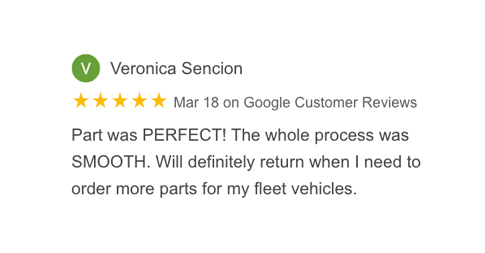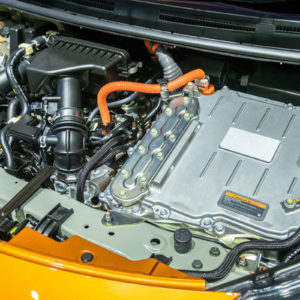Battery packs enable hybrid cars and EVs to run on electric power instead of burning fuel. But have you ever wondered about the difference between hybrid and EV batteries? How can you tell if a battery belongs to an EV or a hybrid? Can you swap batteries between hybrids and EVs, or are they too different?
Is The Battery For an EV or Hybrid Car?
EV and hybrid batteries aren’t interchangeable. Let’s examine the differences between hybrid and EV batteries:
Battery Charging Method
The first major difference involves the charging process. Most hybrid batteries rely on the vehicle’s internal combustion engine to charge them. This is broadly similar to how standard car batteries charge using the alternator. The alternator also relies on the engine to power it.
Plug-in hybrid EV (PHEV) batteries can use another charging method. They can charge when plugged into an external charging station.
In contrast, EV batteries rely entirely on charging stations.
Battery Capacity
The second major difference between EV and hybrid batteries is power capacity. EV batteries can store more power than hybrid batteries.
There are several reasons for the difference in performance. Generally, EV batteries are larger than their hybrid counterparts and contain more energy storage cells.
Furthermore, EV batteries can handle higher voltages. They can accept and release more power, increasing their capacity even further.
The combination of larger size and higher voltage gives EV batteries the capacity to store kilowatt-hours (kWh) worth of power. They come close to approaching the range of vehicles with internal combustion engines.
EVs need high-capacity battery packs because they exclusively rely on electric power for propulsion. Unlike hybrids, EVs don’t have an internal combustion engine that they can fall back on when their battery runs out.
Range
Battery capacity determines the maximum range when running on electric power. Hybrid vehicles have shorter ranges because their batteries are smaller. PHEVs can go further on battery power alone, but EVs have the longest ranges. Some of the latest models with large battery packs can match the range of gasoline or diesel vehicles.
Battery Weight
Electric car batteries pay for their performance with weight. As batteries grow in size, increase voltage, and expand capacity, they also become heavier.
To give you a baseline of how heavy batteries can get, an average 12-volt car battery weighs between 30-50 pounds. In comparison, a hybrid battery pack is roughly 120 pounds, weighing three to four times as heavy as a standard battery. Hybrid batteries are also considered light by electric car battery standards.
An EV battery pack is the heaviest. Improvements in battery technology have brought the average weight down to 1,000 lbs for the latest EV model years. Older EVs retain heavier battery packs.
EV and Hybrid Battery Replacement Cost
The cost of replacing a bad battery pack varies between the types. Bigger, heavier, high-capacity batteries usually cost more than their smaller, lighter, lower-performance counterparts.
As a rule of thumb, replacement hybrid batteries cost the least. New PHEV batteries are more expensive than other hybrid battery packs. Finally, replacement EV batteries have the highest price tags.
The exact cost of battery replacement might vary between models. For example, replacing a Toyota Prius hybrid battery usually costs between $1,000 and $1,200. Meanwhile, installing a new Toyota Camry Hybrid battery can set you back anywhere between $3,000 and $5,000.
Replacing the high-performance EV battery of a Tesla Model S costs between $13,000 and $20,000.
Battery Construction
A hybrid battery contains a series of modules that link together, with each module containing a series of low-voltage cells.
EV batteries also have connected modules and cells. However, each of their modules contains hundreds or even thousands of cells. Their greater number of cells lets them store more power.
Care and Maintenance
Like any other car part, hybrid and EV batteries require maintenance. But what works for a hybrid battery might not apply to an EV battery, and vice versa.
Take the charging process. If you own a hybrid that doesn’t plug into a charging station, you must keep the battery charged by driving your hybrid as often as possible.
In contrast, if you drive a PHEV or EV, you should only charge the battery when necessary. Aim for a charge level between 20% and 80%. Charging the EV battery to 100% can prove just as bad as letting it drop to 0% charge.
Similarities Between Hybrid and EV Batteries
Hybrid and EV batteries aren’t completely dissimilar. Here are some of the properties shared between them:
Battery Voltage
Hybrid, PHEV, and EV batteries are high-voltage devices. In comparison, standard car batteries in internal combustion engines have much lower voltages.
Battery Material
EVs and hybrids usually have lithium-ion batteries, just like most phones and other rechargeable devices.
Compared to lead-acid car batteries, lithium-ion batteries can store charges for much longer. They also handle higher voltage levels, increasing the power that they can hold.
Regenerative Braking
While hybrid and plug-in EV batteries use different primary charging methods, they share a secondary source of power: Regenerative braking.
Regenerative braking is an energy recovery method that gathers kinetic energy when you slow down or stop your car. When you engage the regenerative brakes, the electric motors that drive the wheel operate like generators. They convert kinetic energy into electricity, which goes to the battery.
Both hybrid and plug-in EV batteries benefit from regenerative brakes. Hybrid battery packs can charge up even when the car runs on electric mode instead of its internal combustion engine. Similarly, plug-in battery packs recover some energy without connecting to a charging station.
Warranty
Because hybrid and EV batteries are critical to electric cars, they receive extensive warranty coverage. Most manufacturers provide a warranty that lasts at least 8 years or 100,000 miles.
Where to Get a Replacement Hybrid Battery
While they don’t rely entirely on their batteries, hybrid vehicles lose a lot of their versatility if their battery goes out. That’s why if your hybrid’s battery is on the fritz, you should change it right away. For new replacement hybrid batteries, you can check CarParts.com.
The CarParts.com website is built for easy navigation. It takes only a few quick clicks to pick and purchase a new hybrid battery for your ride. With the wide range of parts, it might seem overwhelming. But the many filters we have allow you to browse by price, manufacturer, and vehicle make and model. Once you order a new battery, we can ship it to your door in as fast as two business days.
Don’t limit your hybrid vehicle’s potential. Buy a brand new hybrid battery from CarParts.com now.
Any information provided on this Website is for informational purposes only and is not intended to replace consultation with a professional mechanic. The accuracy and timeliness of the information may change from the time of publication.

























